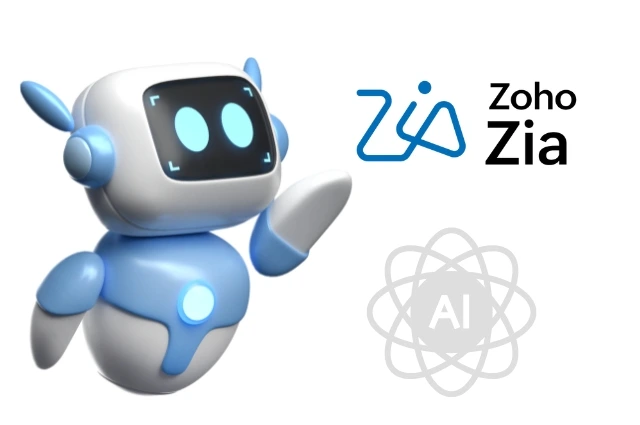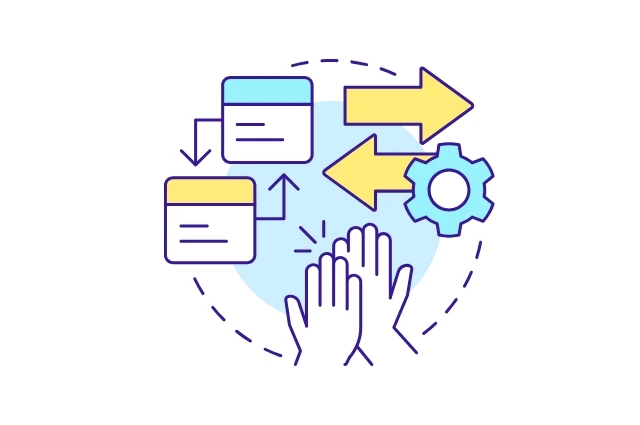
Steps for a Successful AI Adoption Strategy
AI Adoption transforms how businesses connect with customers, offering powerful tools to enhance experiences, drive efficiency, and boost satisfaction. From personalizing interactions to predicting customer needs, AI enables companies to stay ahead of the curve and deliver exceptional service at scale.
In this blog, we will learn how integrating AI into your customer strategy can help you create more innovative, faster, and meaningful connections with your customers.
What is Artificial Intelligence?
Artificial Intelligence (AI) refers to the capability of machines to execute tasks that usually necessitate human Intelligence, including learning, problem-solving, and decision-making. This technology encompasses various domains, including machine learning (ML), natural language processing (NLP), and computer vision, which can significantly improve customer strategies.
Benefits of AI in Customer Strategy
1. Enhanced Customer Insights and Personalization
AI can quickly analyze huge data sets, finding hidden patterns and insights that individuals might miss. AI can use customer data to guess what they’ll buy, allowing companies to tailor their marketing and provide customized services.
AI can also offer helpful information for face-to-face business activities. Using advanced technologies such as video surveillance analytics, data can be smartly collected and examined to understand customers better and enhance business strategies. AI video analytics can help identify essential details like the typical age of customers, the busiest hours, how long customers stay, and other essential customer behaviours.
2. Increased Efficiency and Cost saving
AI makes repetitive tasks more accessible, lowering the amount of work for employees. It can handle data entry, order processing, and decision-making, making operations smoother and saving money.
3. Assessing Data Quality and Availability
Artificial Intelligence excels with data, making it crucial to guarantee access to top-notch, thorough data. It can also perform a data review to pinpoint any missing parts or problems that require resolution before deploying AI.
4. Faster and Efficient Support
Chatbots and virtual helpers powered by AI offer 24×7 assistance, quickly answering customer questions. This technology simplifies everyday customer conversations, reduces waiting periods, and allows human representatives to tackle more intricate problems.
5. Competitive Advantages
Implementing AI in customer strategy places companies as pioneers in innovation. By recognizing market patterns and predicting consumer demands, AI enables firms to maintain a competitive edge, guaranteeing they consistently fulfil customer expectations.
AI Adoption Strategy for your business
1. Identify company needs
To evaluate AI solutions effectively, it’s crucial to first understand your company’s specific requirements and objectives. Identify the tasks or processes that require improvement or automation. Identifying these needs helps you choose AI solutions that match your company’s goals.
2. Setting clear objectives and KPIs
Establish clear, measurable objectives for your AI initiatives to ensure they align with your business goals. For example, if your goal is improving your digital customer experience strategy, define key performance indicators (KPIs) to monitor your progress.
3. Adopt a strong Data-driven structure
Data excellence is crucial for any AI strategy, as it all begins and concludes with data. The quality of data used to train and power AI algorithms directly impacts the quality of AI implementation. Accurate data labelling is essential; otherwise, AI may need to be more accurate, leading to incorrect results. The quality of data sources and the data growth rate are critical elements of an AI strategy.
3. Decide In-House Development
Many organizations today find themselves lacking the internal expertise required to develop, deploy, and manage AI technologies that align with their needs. Areas such as Machine Learning, Deep Learning, and Robotics are among those that necessitate identification. Organizations must then assess whether to develop these solutions in-house or opt for outsourcing AI services. Beyond human resources, organizations must evaluate whether they possess the necessary infrastructure (whether on-premise or cloud-based), algorithms, and visualization tools.
4. Building a Cross-functional team
Successfully adopting AI involves collaboration across various departments. Gather a cross-functional team comprising individuals from IT, marketing, customer service, and management. This can improve communication, boost productivity, stimulate innovation through various ideas, and facilitate the acquisition of new skills from one another.
Your organization can then develop a cohesive and effective AI strategy that leverages each department’s strengths and fully maximizes AI’s potential.
5. Choosing the right tools and platforms
Selecting the best AI tools for your business is very important. Consider their compatibility with your existing systems, their ability to grow with your needs, and the support they provide.
The best tool for AI is Zia- Zoho AI assistant tool. Zia integration with Zoho social and other CRM tools can help you assist with sales predictions and analyze customer emails, offering valuable insights for better customer relationships.
How to Implement AI solution?
1. Data Collection and Management
Efficiently gathering and managing data is crucial for the successful deployment of AI. It’s critical to adhere to best practices in data collection, ensuring that the data is accurate, up-to-date, and securely stored. Above all, compliance with data privacy regulations, such as the General Data Protection Regulation (GDPR), is paramount to safeguard customer data.
Additionally, it’s advisable to establish routine data audits to identify any discrepancies or outdated information. Maintaining clean, reliable data enhances the performance of your AI tools and fosters trust with your customers.
Collaboration becomes more efficient when the entire team is aligned on the significance of adhering to good data practices and decisions based on accurate insights.
2. Integrating AI with Existing Systems
AI is meant to enhance your current systems instead of completely taking their place. Focus on creating strategies for smooth integration, like utilizing APIs to link AI tools with CRM, ERP, and other business systems. This method guarantees a seamless exchange of information and allows you to maximize the benefits of AI.
3. Training and Development
Enhance your team’s capabilities by investing in training programs focused on AI tools. As AI technologies advance swiftly, ongoing education and skill enhancement are crucial.
You can engage your employees in workshops, online courses, and industry conferences to learn about AI trends and best practices. Provide opportunities for employees to share insights and experiences acquired through their training. This can be achieved through regular team meetings, internal presentations, or collaborative projects.
Creating a learning environment and using your team’s combined knowledge helps everyone use AI and innovate in your organization.
4. Evaluating ROI
You have to calculate how well your AI projects are doing by looking at important details. For instance, if you use AI for customer support, monitor how quickly responses are given, how often issues are solved, and how happy customers are. Compare these details to your goals to see if AI is working well.
Conclusion
Using AI in your customer strategy is critical to staying ahead in the market. Learn about AI’s advantages, check if you’re ready, create a strong plan, and keep improving your AI efforts to enhance customer experience, make operations smoother, and grow your business.
Remember, successful AI adoption requires continuous learning, monitoring, and optimisation to stay ahead of the curve. With the right strategy in place, AI can be the catalyst for your business’s growth, helping you stay competitive and deliver exceptional value to your customers.
Ready to use the best AI tool ZIA for your business?
CRM Master’s Infotech is a Premium Zoho Partner that can help you implement Zia, Zoho’s AI assistant, to help streamline tasks, deliver insights, and enhance decision-making. Zia can help improve productivity, customer relationships, and overall efficiency.
Get in touch today to explore how Zia can benefit your business!












